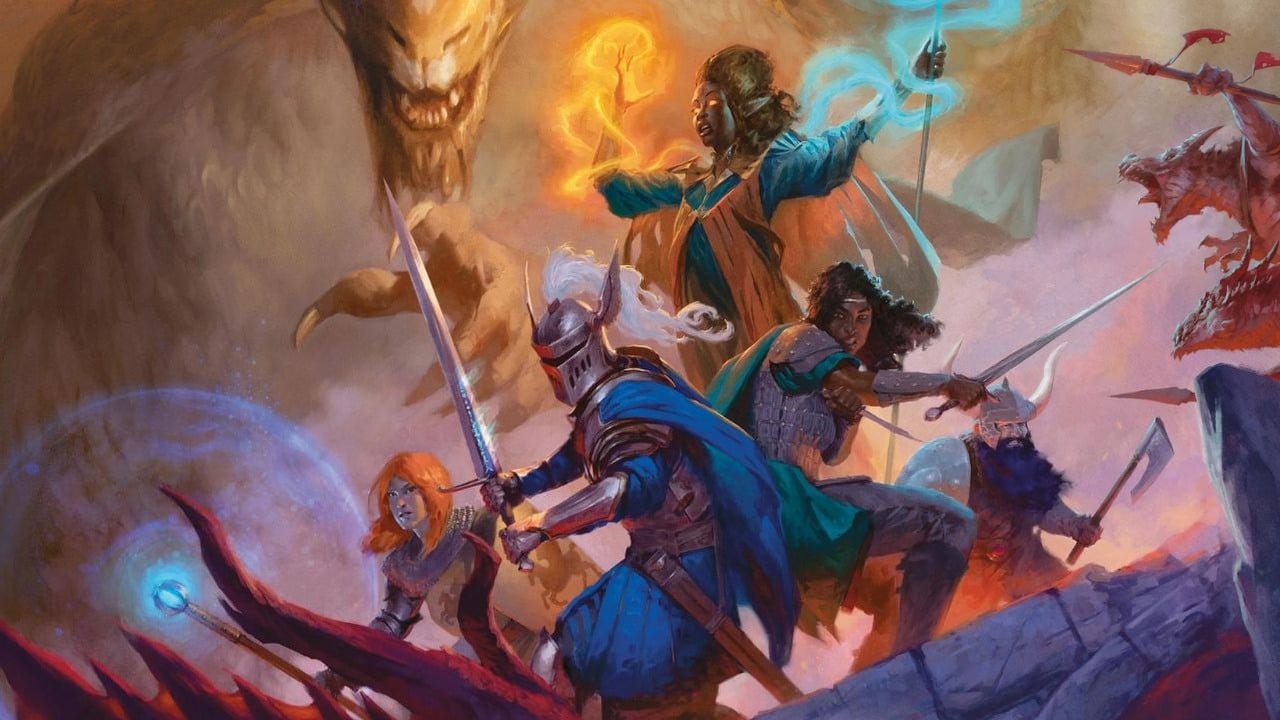
Today, I’m thrilled to share that Wizards of the Coast and Giant Skull Studios have joined forces! Giant Skull is a fresh studio helmed by Stig Asmussen, renowned director of God of War 3 and the Star Wars Jedi series. He established Giant Skull last year following his departure from Respawn Entertainment. The exciting news is that their debut project will be a single-player action-adventure game based in the iconic Dungeons & Dragons universe, which is owned by Wizards of the Coast. While Asmussen’s prowess with single-player action-adventure games is unquestionable, I must admit I’m a bit uncertain about how this new Dungeons & Dragons game will carve its niche.
How well does D&D adapt to a single-player action-adventure game?
It appears that Dungeons & Dragons might be more popular than ever, and this is evident with Larian Studios’ highly successful Baldur’s Gate 3. Many video game RPGs can trace their origins back to the original tabletop game. However, there are only a few games based in the world of Dungeons & Dragons, and this isn’t because the game’s setting is the reason for its popularity. Instead, it could be attributed to other factors.
For numerous enthusiasts of tabletop role-playing games (RPGs), Dungeons & Dragons is primarily about intricate game mechanics and co-creating a vivid world with companions. Many gaming groups modify the rules to fit their distinctive environments. Notable Dungeons & Dragons streaming series like Critical Role and Dimension 20 seldom, if ever, share the same setting as that found in Baldur’s Gate 3. Consequently, when I learn about the director of Star Wars Jedi: Survivor developing an action-adventure game based on Dungeons & Dragons, I’m not especially enthused about it being set in that universe. Dressing a Star Wars Jedi game with a fantasy veneer would result in an enjoyable action-adventure, but I would be taken aback if it could effectively recreate the essence of Dungeons & Dragons.
The achievement of Baldur’s Gate 3 was largely attributed to its immersive roleplaying experience and the highly adaptable abilities it offers. In essence, no two experiences with Baldur’s Gate 3 will lead to identical results. It comes quite close to replicating the sensation of playing Dungeons & Dragons around a table with friends. Despite the captivating fantasy backdrop, I wouldn’t argue that it stands out more than a world like Tamriel from The Elder Scrolls, for instance. In essence, Dungeons & Dragons might not be digital, but it essentially functions as an open-world, turn-based multiplayer RPG. The setting is less crucial in this context.
To clarify, stating that Giant Skull might not create an exceptional game isn’t a definitive judgment; it’s simply that associating the term “Dungeons & Dragons” with a project doesn’t necessarily boost confidence right away. A single-player action adventure usually offers a more linear experience, whereas Dungeons & Dragons boasts nearly limitless possibilities. Both can be fantastic, but this Giant Skull game will need to find unique ways to distinguish itself beyond being set in what could be considered a somewhat common fantasy setting. I’m eager to learn more, but for now, I’ll maintain a cautious optimism.
In a statement about their partnership, Asmussen expressed that their aim is to construct a fresh, engaging Dungeons & Dragons universe, complete with captivating narratives, epic battles, and thrilling exploration – a world that players will find irresistible. This suggests that the Giant Skull team may be developing a new realm within the D&D universe, but ultimately it’s the tale they decide to spin and how well the setting supports that narrative which will make or break the experience.
Read More
- Who Is Harley Wallace? The Heartbreaking Truth Behind Bring Her Back’s Dedication
- Basketball Zero Boombox & Music ID Codes – Roblox
- 50 Ankle Break & Score Sound ID Codes for Basketball Zero
- 50 Goal Sound ID Codes for Blue Lock Rivals
- LINK PREDICTION. LINK cryptocurrency
- Ultimate AI Limit Beginner’s Guide [Best Stats, Gear, Weapons & More]
- TikToker goes viral with world’s “most expensive” 24k gold Labubu
- 100 Most-Watched TV Series of 2024-25 Across Streaming, Broadcast and Cable: ‘Squid Game’ Leads This Season’s Rankers
- League of Legends MSI 2025: Full schedule, qualified teams & more
- All Songs in Superman’s Soundtrack Listed
2025-06-03 05:02